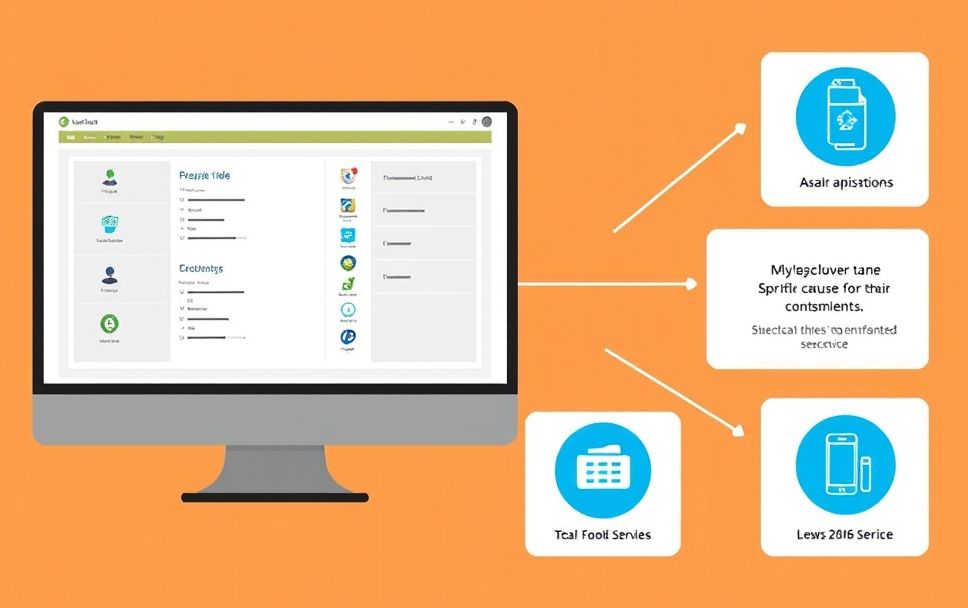Understanding Custom Server Solutions
Custom Server Solutions refer to tailored configurations and setups of server environments that are designed to meet specific needs of businesses or projects. Unlike standard hosting packages, these solutions are built with flexibility and scalability in mind, allowing for unique applications and workflows that cannot be accommodated by off-the-shelf options.
Custom server solutions are essential in today’s digital landscape, where businesses require robust, efficient, and scalable server infrastructure. From web hosting to complex application deployments, the need for personalized server environments is more critical than ever.
Why Are Custom Server Solutions Important?
As businesses grow, their needs evolve. Custom server solutions provide the necessary infrastructure to support this evolution. Here are some key reasons why they are important:
- Scalability: Custom solutions can grow with a business. As traffic increases, resources can be adjusted accordingly without compromising performance.
- Performance: Tailored configurations can enhance the speed and reliability of applications, leading to a better user experience.
- Security: Custom solutions can be designed with specific security protocols that meet the unique requirements of an organization, reducing vulnerabilities.
- Cost-Effectiveness: While initial costs may be higher, customized solutions can lead to long-term savings by optimizing resource usage.
Key Components of Custom Server Solutions
When developing a custom server solution, several components must be considered:
- Hardware: The physical servers, including CPUs, RAM, storage types (SSD vs HDD), and network equipment.
- Operating System: Choosing the right OS (Linux, Windows Server, etc.) based on application requirements.
- Software Stack: The selection of necessary software, including web servers (Apache, Nginx), databases (MySQL, PostgreSQL), and application servers.
- Configuration: Tailoring settings for performance, security, and reliability.
Real-World Examples of Custom Server Solutions
Understanding how custom server solutions are applied in real-world scenarios can provide valuable insights:
- E-commerce Platforms: Large e-commerce websites often use custom solutions to handle high volumes of traffic, ensuring fast load times and secure transactions.
- Game Servers: Online gaming platforms utilize custom servers to provide an optimal gaming experience, with dedicated resources to handle multiplayer interactions.
- Cloud Computing Services: Companies offering cloud services create custom server solutions to cater to different client needs, from storage to processing power.
- Content Delivery Networks (CDNs): Custom servers can be set up to cache content closer to users, improving access speed and reducing latency.
How to Implement Custom Server Solutions
Implementing a custom server solution involves several steps:
- Assessment: Evaluate the specific needs of your project or business. What are the resource requirements? What software will you need?
- Design: Plan the architecture. Decide on hardware, operating systems, and software stacks.
- Deployment: Set up the servers, install necessary software, and configure settings. This may involve collaboration with IT teams or third-party vendors.
- Monitoring and Maintenance: Regularly monitor performance and security. Update software and hardware as necessary to ensure ongoing efficiency.
Practical Applications of Custom Server Solutions
Here’s how you can apply custom server solutions in your daily work:
- Start with a Prototype: Develop a small-scale version of your server solution to test configurations and performance before full deployment.
- Document Everything: Keep detailed records of configurations, settings, and changes to help troubleshoot issues in the future.
- Utilize Virtualization: Use virtual servers to test different configurations without impacting the main server.
- Engage in Continuous Learning: Stay updated on new technologies and best practices to enhance your custom server solutions.
Related Concepts
Custom server solutions are linked to various other concepts in the web hosting and server management domain:
- Virtual Private Servers (VPS): A form of hosting that simulates a dedicated server within a shared hosting environment.
- Dedicated Hosting: A type of hosting where a client leases an entire server, providing more control and resources.
- Cloud Hosting: A network of servers that work together to host applications and services, offering flexibility and scalability.
- Managed Hosting: A hosting solution where the service provider manages the server and its infrastructure.
Conclusion
Custom server solutions are a powerful tool for businesses looking to optimize their web hosting and application deployment. By understanding the components, real-world applications, and practical implementation steps, developers and web administrators can create tailored solutions that meet their specific needs. As technology evolves, the demand for customized server environments will only increase, making it essential for professionals in the field to stay informed and adaptable.
Consider how you can leverage custom server solutions in your own projects. Whether it’s enhancing performance, improving security, or scaling effectively, the right custom setup could make a significant difference in your success.









